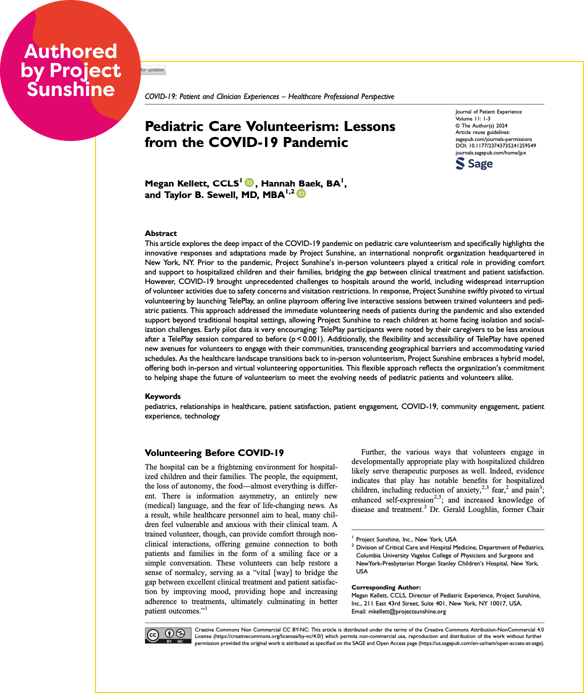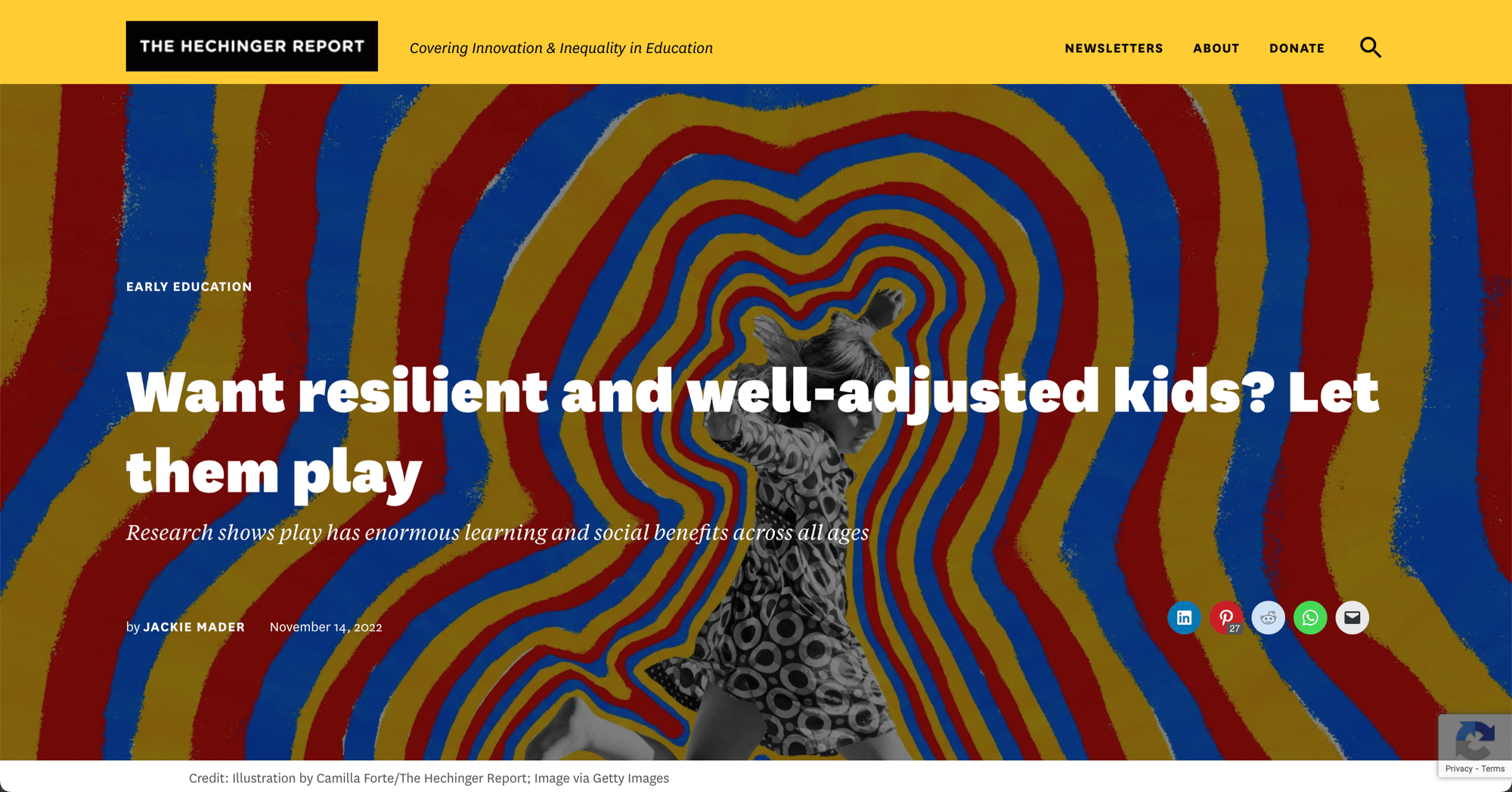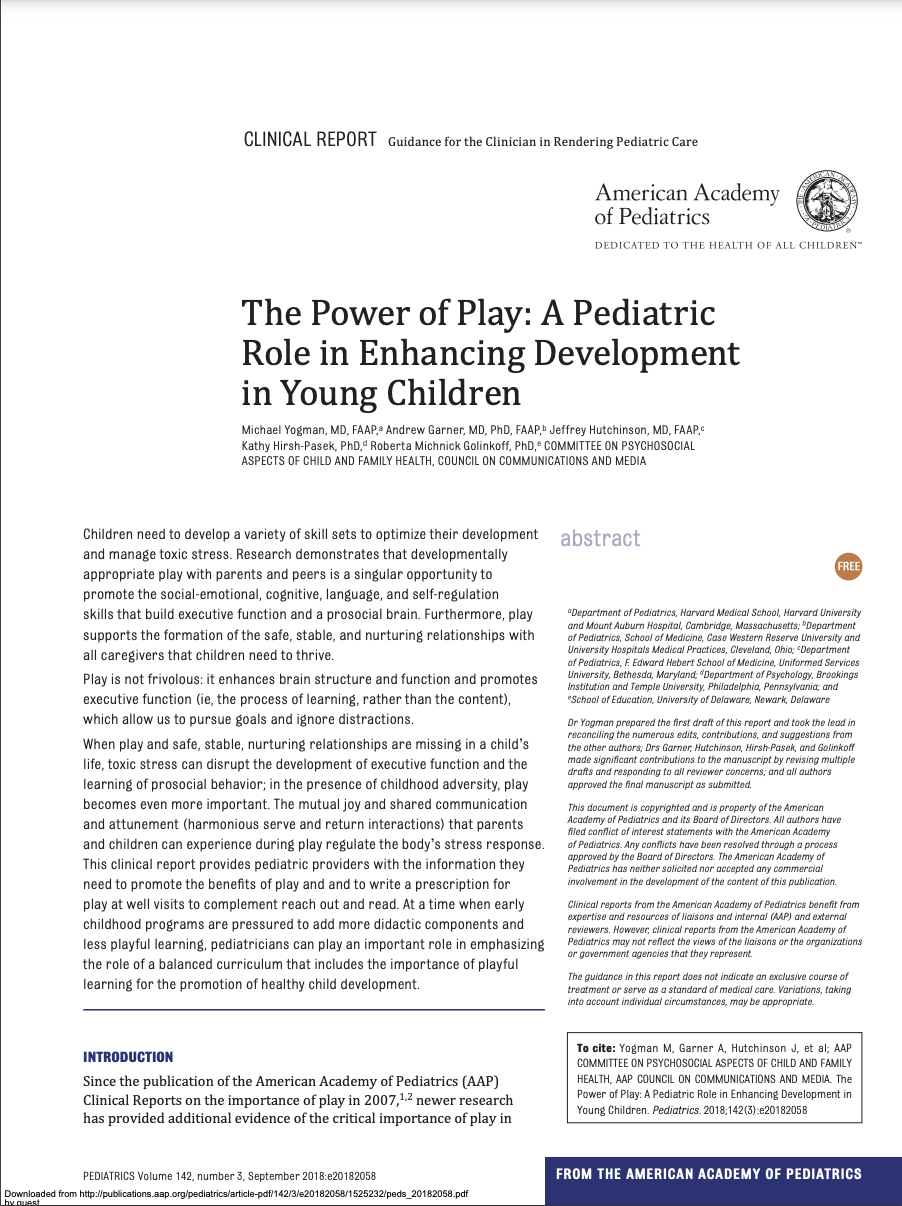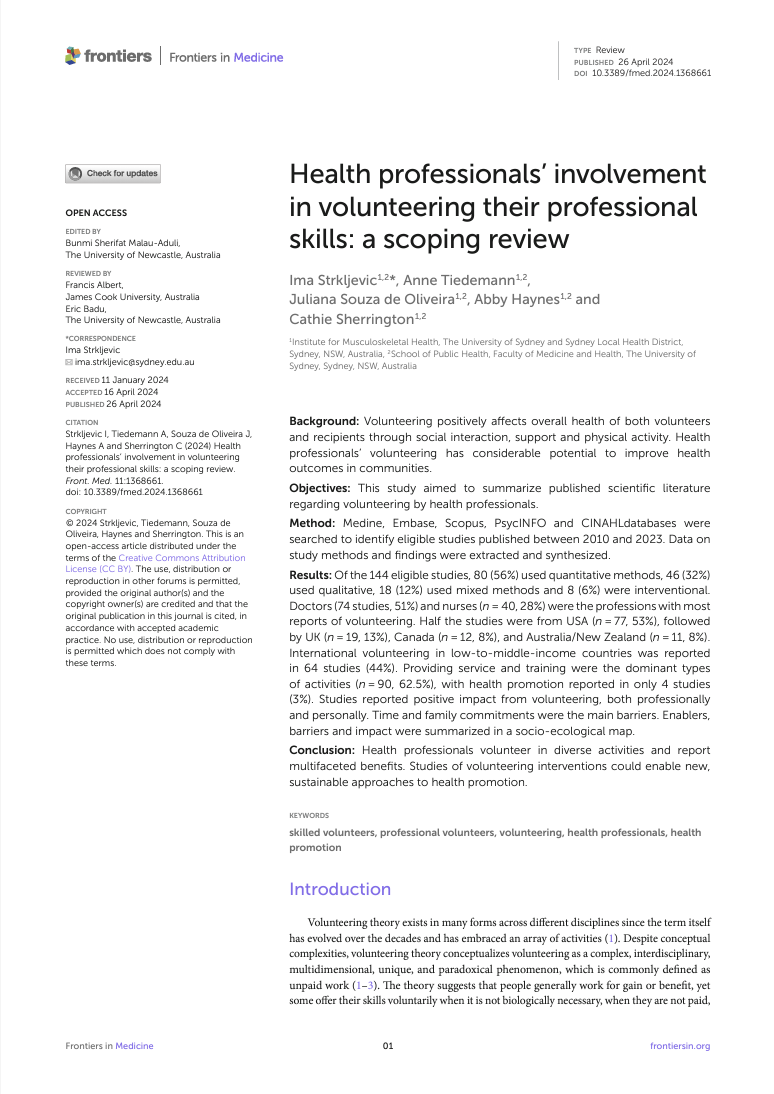Research Articles
The Science of Play: Why Play Matters

Journal of Patient Experience (Project Sunshine)
Pediatric Care Volunteerism: Lessons from the COVID-19 Pandemic
This article explores the impact of COVID-19 on pediatric care and volunteerism. Project Sunshine adapted from in-person interactions during the pandemic, launching TelePlay, a digital platform for live volunteer sessions. TelePlay not only reduced anxiety among participants but also expanded volunteer engagement. Currently, Project Sunshine meets the evolving needs of pediatric patients and volunteers through both online and face-to-face programming.

The Hechinger Report
Want resilient and well-adjusted kids? Let them play
Dr. Stuart Brown's research linked play deprivation to developmental issues, including poor social bonding and empathy. Play is vital for cognitive, emotional, and social growth, yet often limited in schools due to testing pressures. Experts advocate for more unstructured and guided play in curricula to enhance learning, resilience, and emotional health, underscoring its crucial role in child development.

Journal of the American Academy of Pediatrics
The Power of Play: A Pediatric Role in Enhancing Development in Young Children
Children's optimal development and stress management require diverse skills, enhanced by play. Research indicates that play fosters crucial social, cognitive, and emotional abilities, while supporting nurturing relationships critical for thriving. It boosts brain functionality, focusing on goal achievement. Lack of play can impair stress regulation and social development. During adversity, play is key for managing stress. Pediatricians should advocate for play-centric curriculums for robust child development.

Frontiers in Medicine
Health professionals’ involvement in volunteering their professional skills: a scoping review
Volunteering has a positive impact on the well-being of both volunteers and recipients through social connections, supportive encounters, and physical engagement. The act of volunteering by health professionals holds significant promise for enhancing community health outcomes. This review summarizes the findings from scientific publications on the volunteer efforts of health professionals. The results reveal that health professionals engage in a wide array of volunteer activities and experience a broad spectrum of benefits.
